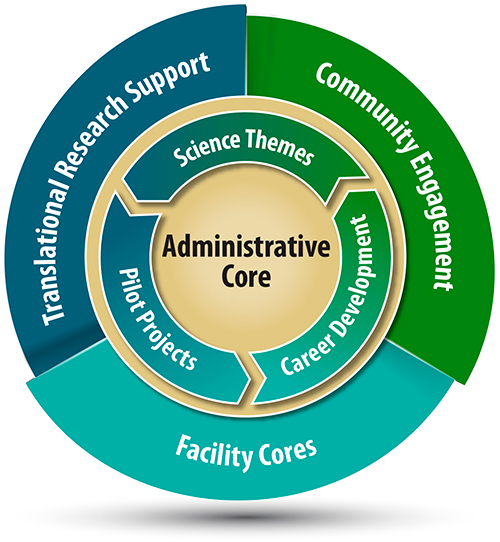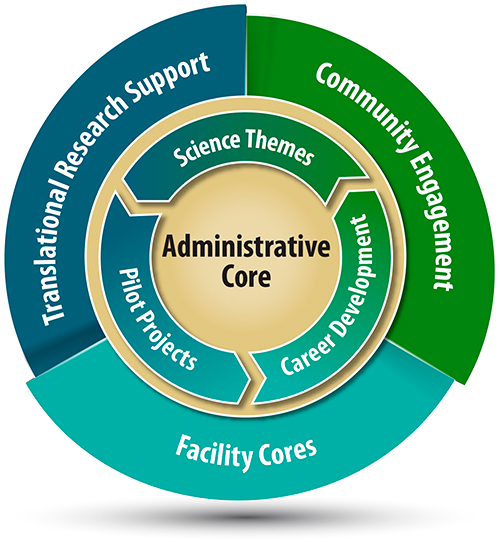Environmental Health Sciences Core Centers
The EHS Core Centers Program funds centralized scientific resources and facilities that are shared among researchers at a single institution. The team science environment fosters innovation and productivity beyond what individual scientists are likely to achieve. Each center is built around an overall strategic research vision and includes:
- An Administrative Core,
- An Integrated Health Sciences Facility Core,
- A Community Engagement Core,
- Other optional facility cores.
Components interact to address the vision and central questions of the center. Click on a component to learn more about its role within a center.

Click on the graphic below to learn more about each component's role within a center.

Goals of an EHS Core Center
Advance Scientific Research:
Centers provide a collaborative environment for researchers to exchange ideas and perspectives. Access to Facility Cores drives the development of new techniques and methodologies. This team approach to science leads to novel, innovative research that would be difficult for a researcher to accomplish on his or her own.
Promote Community Engagement
Community Engagement Cores (CECs) translate and disseminate center research results into information community members, decision makers, public health professionals, and educators can use to protect and improve public health. This is accomplished by sharing research findings with community partners and conveying concerns back to center researchers so they are aware of the issues important to the community.
Advance Translational Research
Specialized cores called Integrated Health Science Facility Cores (IHSFCs) promote collaboration among basic scientists, clinical researchers, community engagement experts, and public health practitioners. These collaborations facilitate translation of basic mechanistic and toxicological research into knowledge and information that can be used to improve public health or clinical practices.
Support the Next Generation
Centers provide young investigators with the training, mentoring, resources, and opportunities necessary to enhance their skills to become independent and successful researchers.
Program Team
Program Director

Claudia L. Thompson, Ph.D.
Population Health Branch
CEC Coordinator





